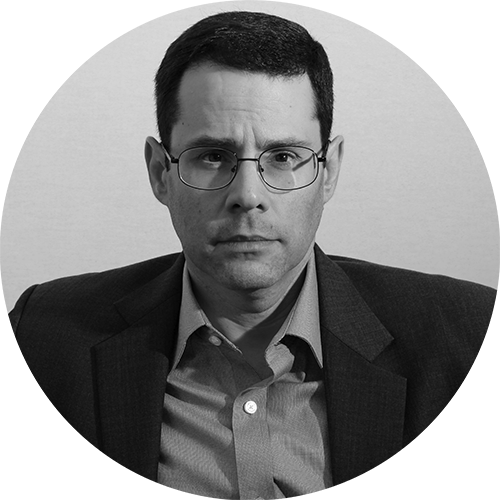Maybe America doesn't need a king. But we must reimagine the presidency.
Lift from the president the burden of being a national symbol, and from us the burden of feeling unrepresented by that symbol
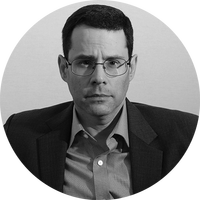

A free daily email with the biggest news stories of the day – and the best features from TheWeek.com
You are now subscribed
Your newsletter sign-up was successful
Recently, I published an article in Politico provocatively titled "America Needs a King." In response, Matt Lewis wrote a column here at The Week asking why so many conservatives are obsessed with monarchies.
In my original article, I argued that, given the deterioration of a common sense of American identity and the bitter polarization in politics, we need a nationally unifying figurehead who can transcend politics and represent all Americans.
The solution I suggested is to separate the position of head of state from head of government, as is done in many democracies. The president can remain the chief executive, as provided for by the Founding Fathers, and fully indulge in his elbow-throwing political nature. A new position, which I labeled "First Citizen," would take on all non-constitutionally mandated activities, such as meeting other heads of state for social purposes (such as state dinners, attending state funerals, Olympics, etc.), speaking at national tragedies and national celebrations, and the like. The First Citizen would have no executive authority of any kind.
The Week
Escape your echo chamber. Get the facts behind the news, plus analysis from multiple perspectives.

Sign up for The Week's Free Newsletters
From our morning news briefing to a weekly Good News Newsletter, get the best of The Week delivered directly to your inbox.
From our morning news briefing to a weekly Good News Newsletter, get the best of The Week delivered directly to your inbox.
The real thrust of my article was to explore a different path, perhaps a counterintuitive one, to a more limited conception of the president, and in a symbolic way inculcate the spirit of smaller government.
From one perspective, such a change seems minor and unnecessary. Even if the country did agree to the position of First Citizen, what would it matter? A new face presiding over a few ceremonies, welcoming a Super Bowl champion, pardoning some Thanksgiving turkeys, and the like. That's surely irrelevant to the issues of the day, and couldn't possibly be the solution to our governing challenges.
Or could it?
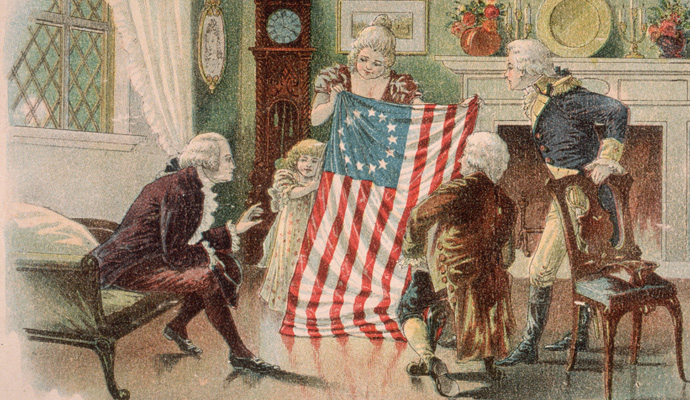
Today, the president is not the type of relatively limited chief executive envisioned by the Founders. Not only has the position become far more powerful than proposed, thanks to the steady expansion of the federal government, but it has also taken on vastly more importance due to the global strength and influence of the United States. Thus, whether or not one believes in a "living" Constitution or is a strict constructionist, the reality is that the spirit and actual role of the president have changed even within a relatively constant constitutional framework.
A free daily email with the biggest news stories of the day – and the best features from TheWeek.com
The Founding Fathers did not consider the symbolic nature of the position of president outside of his governing role. Indeed, the series of Federalist Papers on the "Chief Executive," primarily Nos. 67-77 written by Alexander Hamilton, focuses solely on defending an executive position that "combines, as far as republican principles will admit, all the requisites to energy... [and] also combine[s] the requisites to safety, in a republican sense, a due dependence on the people, a due responsibility [sic]" (Federalist No. 77, Hamilton). In Federalist No. 69, which contains the most extensive discussion of the differences between the proposed president and the king of Great Britain, there is no focus on the symbolic character of the president; rather, the argument concentrates solely on how that position is distinguished from a monarch in its governing actions.
The lack of explicit focus by the Founding Fathers on the nationally symbolic role of the president was entirely understandable. The entire republican project rested on creating a government of laws, not men. As much as the drafters of the Constitution wanted an effective (i.e., "energetic," in Hamilton's words) chief executive, they wanted him constrained by the people's representatives in Congress. Hamilton argued successfully for a unitary executive, and not one with multiple officers as in republican Rome, but one that had to be balanced by the legislative branch, with its arguably greater authority.
More importantly, the Founders did not consider the head of the federal government to be more important, except in the matter of negotiating foreign treaties, than the several governors of the states. Indeed, in Federalist No. 69, Hamilton sums up the restrictions on the president by noting, "Is not the power of the governor [of Hamilton's New York]… greater than that of the President?" The actual quotation here comes from the discussion of the restriction on the president's power of pardons, but Hamilton repeats it several times, with respect to issues such as control of the state militias, the federal army and navy, and the power of appointments.
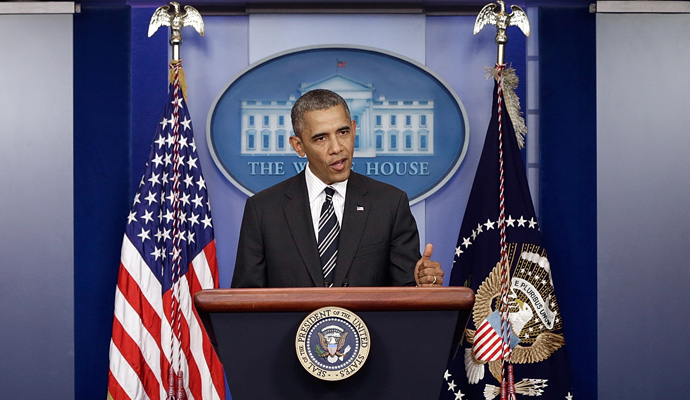
The changed nature of the federal government since 1787 has resulted in an extraordinary change in the powers of the president. Today, our chief executive commands a standing military of once-unimaginable size and budget; his executive departments have multiplied in number and have steadily encroached on the prerogatives of the states, thanks in no small part to the acquiescence of the judiciary; he leads international coalitions both diplomatic and military.
Perhaps even more importantly, his position has increased in pomp and prestige far beyond what the Founding Fathers could have dreamt. The combination of America's post-World War II global power and the rise of pervasive media and instant communications have resulted in the magnification of the position of the president. Teddy Roosevelt's "bully pulpit" is a quaint idea in an age of nonstop coverage of the chief executive. By default, the president has become the symbol of the nation, perhaps because he is the only nationally elected figure.
He commands a personal air force for his needs and is surrounded by a phalanx of armed guards who close down streets, stop pedestrian traffic, and commandeer entire city blocks wherever he goes. His briefest of visits to the smallest of places cost his taxpayers millions of dollars. He can command the attention of almost anyone in the world, including other foreign leaders, and can draw crowds of tens of thousands at home and abroad. His likes and dislikes, favorite foods, and favorite performers are celebrated or derided. More recently, fervent public acolytes of a president can, at the risk of ridicule, liken him to a "messiah" or a "sort of god."
His symbolic role increasingly is reflected in our electoral politics. While presidential contenders have long had to endure rubber chicken lunches, don cowboy hats, and kiss babies, today's media-driven campaigns reflect the reality that the people want the president not merely to have sensible policies or be a prudent executive, but to be representative of them personally. Perhaps they want such "representation" even more than governing ability; hence, Bill Clinton's savvy "I feel your pain" comment during his 1992 campaign. Ironically, citizens want the president to be identifiably one of them because he is symbolically so much larger. That is a qualification one finds nowhere in the Federalist Papers.
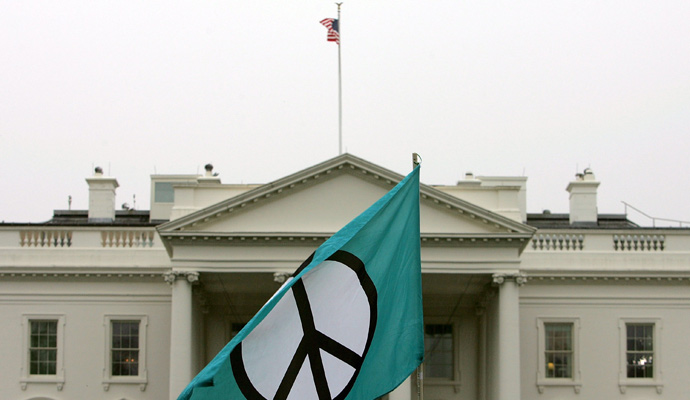
This brings us back to the issue of the role of head of state versus that of head of government. The state role of the president is almost nowhere discussed by the Founding Fathers, except perhaps for the constitutional authority to "receive Ambassadors and other public Ministers" (Article II, Section 3). Today's president, however, cannot be conceived of as anything other than the symbol of the nation.
This has created an imbalance in our federal government in spirit if not in fact. Criticism of the president is taken with umbrage by his supporters not so much because of what it says about him as the chief executive, but by what it says about him as a national symbol – and hence their symbol. Conversely, many who criticize the president do so because they feel his actions are unbecoming of a national symbol, or not representative of them personally, and not solely because of what they say about his governing program.
The outrage is shared by adherents from both sides of the political spectrum, but for example: Conservatives were flummoxed and aghast when it appeared that Barack Obama bowed to the Saudi king during one of his first overseas summits, in April 2009, and appeared to do so to the Japanese emperor and even the Queen of England. Small-r republicans abhor the idea of their leader bowing to foreign monarchs, precisely because he is the symbol of a nation that broke from monarchical bonds. Nor can they easily accept as the national symbol a man who initially refused to wear an American flag lapel pin.
None of this might matter if not for the fact that such powerful feelings abet the sense of alienation that at least half the country feels at any time from their president. It would be much easier simply to disagree with or disdain a head of government. Most citizens, it is safe to say, accept that they must at times be governed by those for whom they did not vote and whose policies they oppose. But we are in an age when it appears increasingly difficult for many citizens to accept being represented by someone they vehemently dislike.
This is an underappreciated element in the decay of our political system. It drives greater vitriol and partisanship, as well as greater apathy. Liberals refused to accept George W. Bush as their national symbol, even though he came to office preaching "compassionate conservatism." Conservatives find it painful to watch Barack Obama award the Medal of Honor to military heroes of a war he refused to support while in the Senate. Partisans on both sides feel revulsion at watching a president from the other party preside over national mourning or celebration.
The public's anger and hatred are poisonous not only to our political system, but more importantly to our sense of national community.
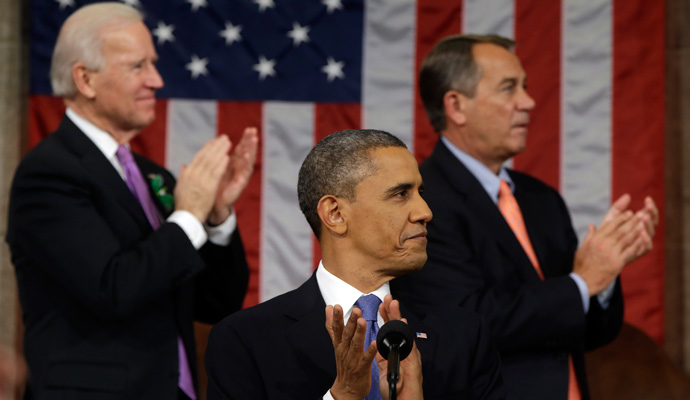
Ideally, the symbolic nature of the presidency would be lessened and the passions of citizens more restrained. But we must deal in reality. Today, the symbolism of the presidency has never been greater, and the factionalism and passions that so concerned Founders like John Adams are unquestionably on the upswing. In an age in which the media can so easily fan the flames either of worship or ridicule, and when an ever larger segment of the population finds it natural to vent and publicize their every thought through Facebook and Twitter, we are moving steadily farther from sober and responsible control of public passion.
Such contention is magnified at the national level, and the symbolic character of the presidency is inescapably enmeshed in the political struggle. A president who is comfortable calling Wall Street bankers "fat cats" is not merely aligning himself with one group, but using his position to delegitimize the one and enhance the other. He is thus as destructive of the tone of political discourse as his opponents who absurdly question his citizenship. And that makes it all the harder for many to believe he represents or understands them, not simply in a political sense, but in a much deeper social sense of national community.
Separating the function of head of state from that head of government would not make political divisiveness disappear. Nor should we want it to. Healthy debate and opposing views, as well as a minority party in government that can act as a brake on the will of the moment, are vital to our system of representative democracy. However, passionate hatred for political opponents and worship or disdain for the chief executive are neither vital nor healthy.
Let there be someone nonpartisan and nonpolitical who represents, but does not govern, the people. Let that person preside over the national ceremonies that are meant to bring us together. Let that person award medals to soldiers and scientists alike, light the national Christmas tree, and lay wreaths at the Tomb of the Unknown Soldier. Let that person travel to storm-ravaged areas, while the president's people work out the relief efforts. Let him or her comfort the nation after unimaginable tragedies such as Newtown.
Such a First Citizen could only be selected in a truly bipartisan manner, named by the GOP and Democratic leaders in both the Senate and the House, and approved by a unanimous Supreme Court. Alternately, a special bipartisan congressional commission from both the House and Senate could be charged with picking someone subject to approval by the Supreme Court. The person selected could not be a serving or past politician, and would be forbidden from running for public office after their term as First Citizen. Nor could they comment on political issues, just like the Queen of England. The sciences or arts would be places to look for distinguished, accomplished candidates who are not inherently political.
That person would be far from a monarch. Nor would he be a politician. He would be a citizen, like the rest of us. That would help, in some small way, to tamp down the passions of those who oppose the ruling power, and also to reach out to politically disengaged citizens. The concern of the First Citizen should be the commonwealth, and not any party, policy, group, or faction.
Let the president return to being an "officer" of the people, as Hamilton argued. Lift from him the burden of being a national symbol and from us the burden of feeling unrepresented by that symbol. That would restore a balance to our system that we seem to be losing, and which makes our national community weaker.
Michael Auslin is the author of The End of the Asian Century: War, Stagnation, and the Risks to the World's Most Dynamic Region, which will be published in January.
-
 Local elections 2026: where are they and who is expected to win?
Local elections 2026: where are they and who is expected to win?The Explainer Labour is braced for heavy losses and U-turn on postponing some council elections hasn’t helped the party’s prospects
-
 6 of the world’s most accessible destinations
6 of the world’s most accessible destinationsThe Week Recommends Experience all of Berlin, Singapore and Sydney
-
 How the FCC’s ‘equal time’ rule works
How the FCC’s ‘equal time’ rule worksIn the Spotlight The law is at the heart of the Colbert-CBS conflict
-
 The billionaires’ wealth tax: a catastrophe for California?
The billionaires’ wealth tax: a catastrophe for California?Talking Point Peter Thiel and Larry Page preparing to change state residency
-
 Bari Weiss’ ‘60 Minutes’ scandal is about more than one report
Bari Weiss’ ‘60 Minutes’ scandal is about more than one reportIN THE SPOTLIGHT By blocking an approved segment on a controversial prison holding US deportees in El Salvador, the editor-in-chief of CBS News has become the main story
-
 Has Zohran Mamdani shown the Democrats how to win again?
Has Zohran Mamdani shown the Democrats how to win again?Today’s Big Question New York City mayoral election touted as victory for left-wing populists but moderate centrist wins elsewhere present more complex path for Democratic Party
-
 Millions turn out for anti-Trump ‘No Kings’ rallies
Millions turn out for anti-Trump ‘No Kings’ ralliesSpeed Read An estimated 7 million people participated, 2 million more than at the first ‘No Kings’ protest in June
-
 Ghislaine Maxwell: angling for a Trump pardon
Ghislaine Maxwell: angling for a Trump pardonTalking Point Convicted sex trafficker's testimony could shed new light on president's links to Jeffrey Epstein
-
 The last words and final moments of 40 presidents
The last words and final moments of 40 presidentsThe Explainer Some are eloquent quotes worthy of the holders of the highest office in the nation, and others... aren't
-
 The JFK files: the truth at last?
The JFK files: the truth at last?In The Spotlight More than 64,000 previously classified documents relating the 1963 assassination of John F. Kennedy have been released by the Trump administration
-
 'Seriously, not literally': how should the world take Donald Trump?
'Seriously, not literally': how should the world take Donald Trump?Today's big question White House rhetoric and reality look likely to become increasingly blurred
